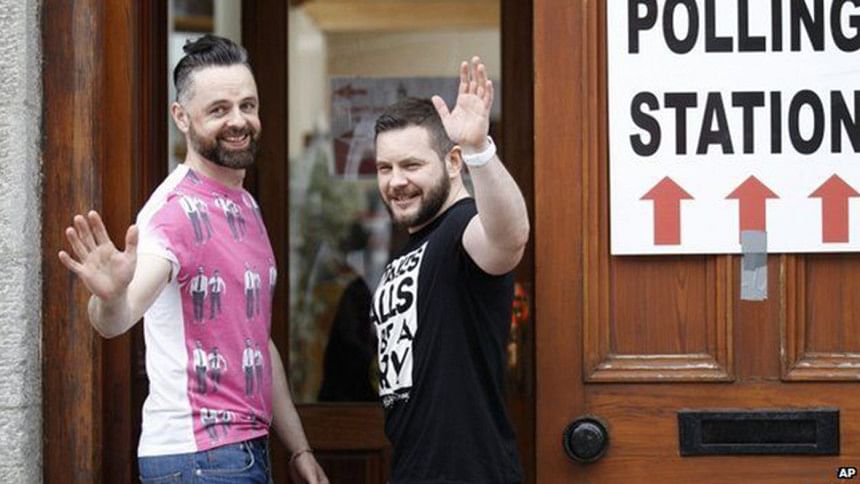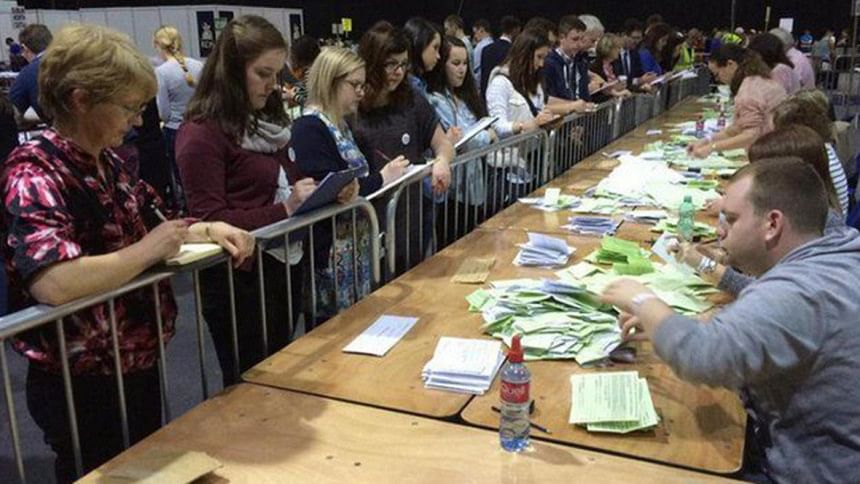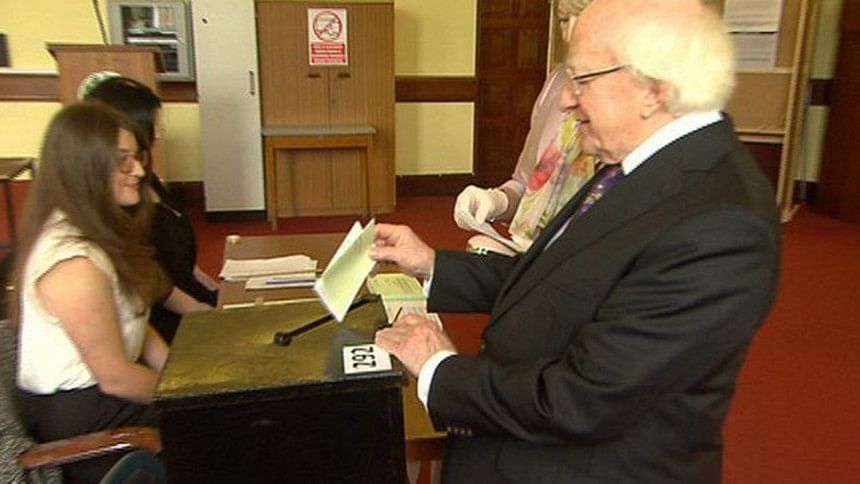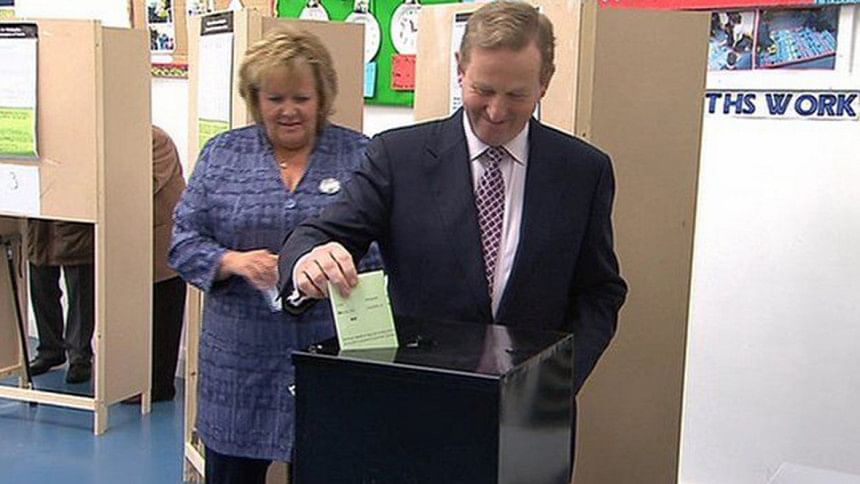Ireland vote 'backs gay marriage' (video)

Early indications suggest the Republic of Ireland has voted to legalise same-sex marriage in a historic referendum.
More than 3.2 million people were asked whether they wanted to amend the country's constitution to allow gay and lesbian couples to marry.
Government ministers have said they believe it will pass, while prominent "no" campaigners have conceded defeat.
Counting started at 09:00 BST on Saturday morning. An "unusually high" turnout has been reported.
A result is expected by mid to late afternoon on Saturday.

Conceded
If the change is approved, the Republic of Ireland would become the first country to legalise same-sex marriage through a popular vote.
Minister for Equality Aodhan O Riordain said on Twitter: "I'm calling it. Key boxes opened. It's a yes. And a landslide across Dublin. And I'm so proud to be Irish today."
Minister for Health Leo Varadkar, who earlier this year came out as the Republic of Ireland's first openly gay minister, said the campaign had been "almost like a social revolution".
Speaking from the Dublin count, he told Irish broadcaster RTE that it appeared about 75 percent of votes being counted there were in favour of legalising same-sex marriage.
Some prominent "no" campaigners have already conceded defeat.
David Quinn of the Iona Institute, a Catholic group, said it was "obviously a very impressive victory for the 'yes' side".
"Obviously there's a certain amount of disappointment, but I'm philosophical about the outcome," he told RTE.
"It was always going to be an uphill battle - there were far fewer organisations on the 'no' side, while all the major political parties were lined up on the 'yes' side and you had major corporations coming out for the first time to say how we should vote on a particular issue."
Dublin, Limerick and Waterford passed the 60 percent electorate turnout mark, while in Cork, Carlow, Kilkenny, Donegal, Tipperary, Kerry and Galway it was above 50 percent.
The upper courtyard of Dublin Castle is open to 2,000 people for people to view the declarations on a large screen.
Before Friday, votes had already been cast in some islands as well as hospitals, hospices and nursing homes. Irish citizens who are registered were allowed to vote, but there was no postal voting. Many people returned to Ireland to cast their votes.


They were asked whether they agreed with the statement: "Marriage may be contracted in accordance with law by two persons without distinction as to their sex."
The referendum was being held 22 years after homosexual acts were decriminalised in Ireland.
In 2010, the Irish government enacted civil partnership legislation, which provided legal recognition for gay couples.
But there are some important differences between civil partnership and marriage, the critical one being that marriage is protected in the constitution while civil partnership is not.
Presidential candidates
A constitutional convention established by the Irish government in 2013 considered the specifics of a proposal on extending marriage rights, as well as discussing other changes to the constitution.
It voted in favour of holding a referendum on same-sex marriage and the date was announced by Taoiseach (Prime Minister) Enda Kenny earlier this year.
If the measure is passed, Catholic churches will continue to decide for themselves whether to solemnise a marriage.
The leader of the Catholic Church in Ireland, Eamon Martin, has said the church may look at whether it continues to perform the civil side of solemnisation if the change comes in.
A separate referendum, on whether the eligibility age of presidential candidates should be lowered from 35 to 21, was being held at the same time, along with a parliamentary by-election in the Carlow-Kilkenny constituency.
Same-sex marriage is currently legal in 19 countries worldwide.

 For all latest news, follow The Daily Star's Google News channel.
For all latest news, follow The Daily Star's Google News channel. 



Comments